Latest News
Afghanistan water sources use by neighboring countries
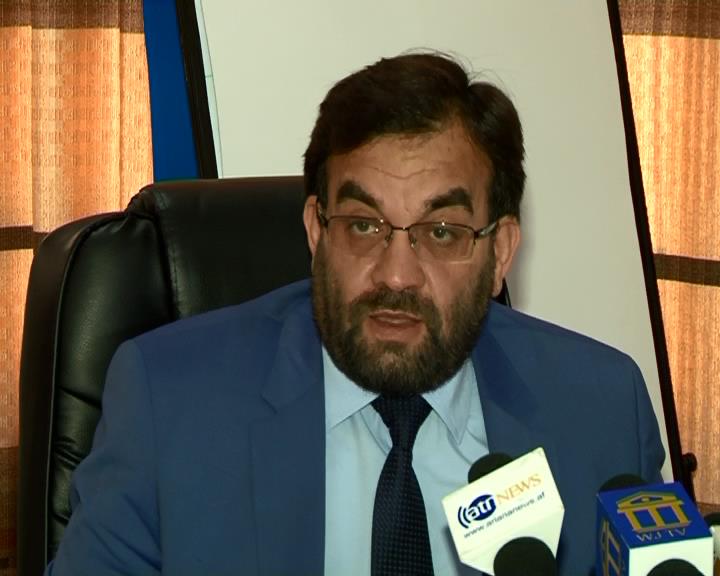
The fears of a security breakdown in Afghanistan boil the larger possibility of an economic collapse. The country’s revenues seem abysmal, and the mismanagement of billions of dollars in aid has turned it entirely dependent on foreign donations and the presence of foreign troops.
With Afghanistan being largely an agricultural country, investment in the water sector should have been a natural priority for sustainable economic development. Yet, that is not the case. In the Afghanistan National Development Strategy, a framework for allocating international aid, water does not figure as a core development sector. Only 5 percent of development has gone into the water sector during the past decade.
The Ministry of Water and Energy says that Afghanistan water resources reaches to 57 billion cubic meters which the most parts of it use by neighboring countries.
Along the Afghanistan’s borders, villagers see their water flow into the neighboring countries without being able to use it for their own local fields. The scarcity of water has led to tensions between tribes and villages.
The ministry if water declared that the continuation of insecurity caused Afghanistan fails to effectively use its water from the construction of dams and other projects.
Officials in the ministry noted that the residents of the country must cooperate with the government in providing the security of water and electricity projects.
“The construction of dams takes long time and in some cases the works have not been done properly and on time. In addition, the main problem is insecurity that cause the projects face a deadlock,” Ali Ahmad Osmani, minister of Water and Energy said.
One of Afghanistan’s missed opportunities in the last decade was its failure to legislate a comprehensive water law. Existing law does not define water rights.
Land owners are also owners of water and landless farmers have no rights to water. The water management institutions are highly ineffective.
The lack of a database of natural resources and the limited ability of the government to collect data is another challenge and a major obstacle to planning and development.
Afghanistan has a population of 29 million, with 79% of the population living in rural areas. Only 27% of its population has access to improved water sources, and it goes down to 20% in rural areas, the lowest percentage in the world.
The numbers get even worse when you look at the percentage of people with access to improved sanitation facilities. With the numbers at 5% nationwide, and only 1% in rural areas, Afghanistan again ranks the worst in the world.
In Kabul, the capital, with a population of 6 million, 80% of the people lack access to safe drinking water, and 95% lack access to improved sanitation facilities.
Analysts say that reaching the safe driniking water is another challenges of Afghanistan residents which the people are suffering from.
Water is a collective issue for Afghanistan and its neighbors. Any solution should therefore be multinational. Nations involved in Afghanistan, in particular US-led forces, should avoid politicizing this problem as it is so vital to the future of Afghanistan and the region as a whole.
Investment decisions should be based not on efforts to deprive neighboring countries of water but on avoiding waste and improving utilization of resources.
Without regional cooperation, Afghanistan will be faced with deeper and unresolvable challenges that will be even more difficult to solve after most international forces leave in 2014.

Latest News
Karzai and Abdullah extend condolences on Khamenei’s death
On his X account, Karzai expressed deep sympathy and condolences to the Iranian government and people.
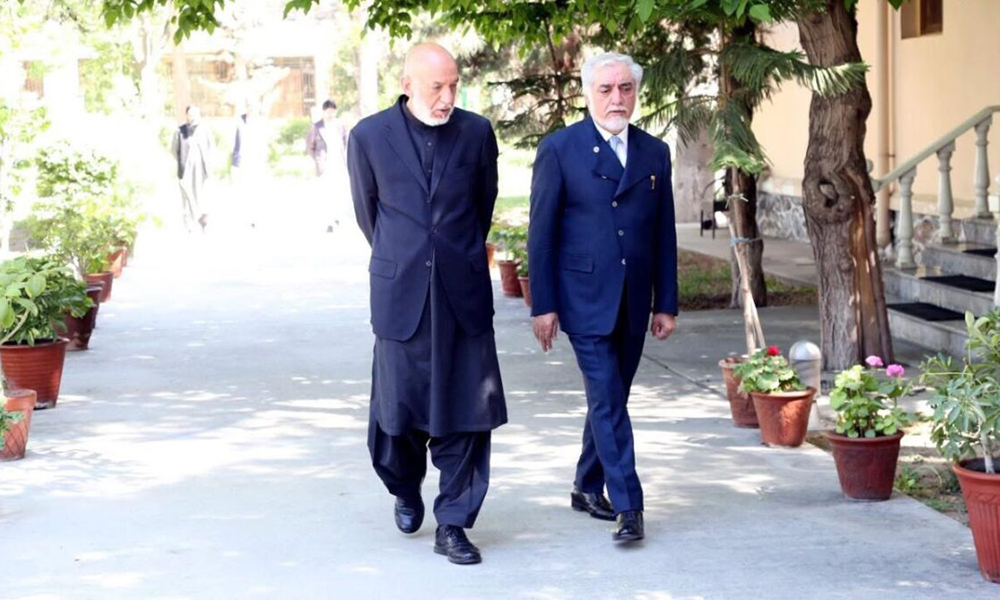
Former Afghan President Hamid Karzai and former head of the High Council for Peace Dr. Abdullah Abdullah have expressed sorrow over the reported killing of Iran’s leader Ayatollah Ali Khamenei.
The United States and Israel reportedly carried out joint attacks on several Iranian cities on Saturday.
Reports indicate that the attacks resulted in the deaths of Iran’s Supreme Leader Ayatollah Ali Khamenei, former President Mahmoud Ahmadinejad, and other high-ranking officials.
On his X account, Karzai expressed deep sympathy and condolences to the Iranian government and people.
He wrote: “I appreciate the continued support of the people of Afghanistan for him (Khamenei) and express my solidarity with the noble people of Iran. I pray for paradise for the martyrs and wish peace, security, and prosperity for our friend and brother country, Iran.”
Abdullah, on his Facebook page, said: “With great sorrow, the martyrdom of Iran’s leader Ayatollah Seyed Ali Khamenei, some of his family members and associates, and the recent martyrs has caused us deep grief.”
He prayed to Allah for patience, endurance, and great reward for the victims’ families and the Iranian people.
Latest News
Khalilzad says Pakistan’s leadership misjudges Afghanistan, urges diplomacy
Khalilzad stated: “Pakistan’s demands from Afghanistan are so unreasonable that even the government of Pakistan is embarrassed to articulate them.”
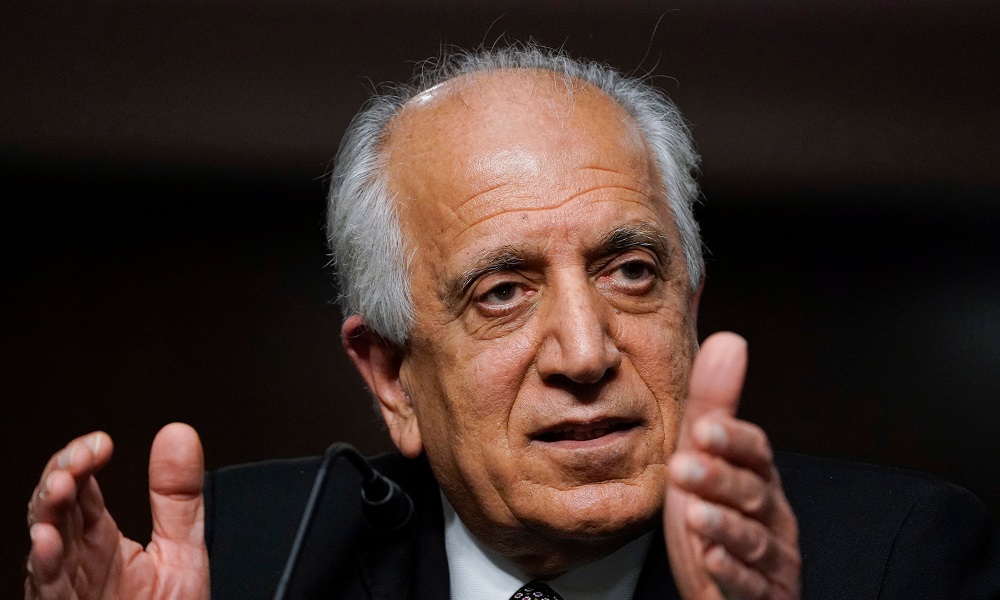
Former US special envoy for Afghanistan Zalmay Khalilzad has criticised Pakistan’s military leadership, saying it fundamentally misreads Afghanistan and wrongly assumes it can force Kabul to accept its demands through military pressure.
Khalilzad stated: “Pakistan’s demands from Afghanistan are so unreasonable that even the government of Pakistan is embarrassed to articulate them.”
His remarks come amid renewed tensions following Pakistani airstrikes on Afghan territory, which Kabul has condemned as violations of its sovereignty.
Khalilzad, who served as Washington’s Special Representative for Afghanistan Reconciliation and played a central role in negotiations leading to the 2020 Doha agreement between the United States and the Islamic Emirate of Afghanistan, argued that the current trajectory risks deepening instability in both countries.
He maintained that coercion would not produce lasting security outcomes.
According to Khalilzad, regional security threats are mutual and require coordinated responses rather than unilateral action.
Tensions between Kabul and Islamabad have escalated in recent months over accusations that armed groups operate from each other’s territory. Pakistan has repeatedly blamed Afghan-based militants for attacks inside its boundaries, while Afghan authorities have accused Pakistan of breaching international norms through strikes.
Khalilzad said diplomacy remains the most viable path forward. He noted that the Islamic Emirate of Afghanistan has expressed readiness to reach a bilateral understanding that would prevent either country’s territory from being used against the other.
“The Islamic Emirate of Afghanistan is ready to reach an agreement with Pakistan to prevent the use of each country’s territory against the other,” he said.
Concluding his remarks, Khalilzad described Pakistan as responsible for the latest escalation and urged both sides to return to dialogue, stressing that sustained diplomatic engagement — rather than force — offers the best chance of reducing tensions and promoting regional stability.
Latest News
Afghan air force strikes key Pakistani military installations in retaliatory operation
The ministry said preliminary assessments indicate the operations caused significant damage to the intended targets.
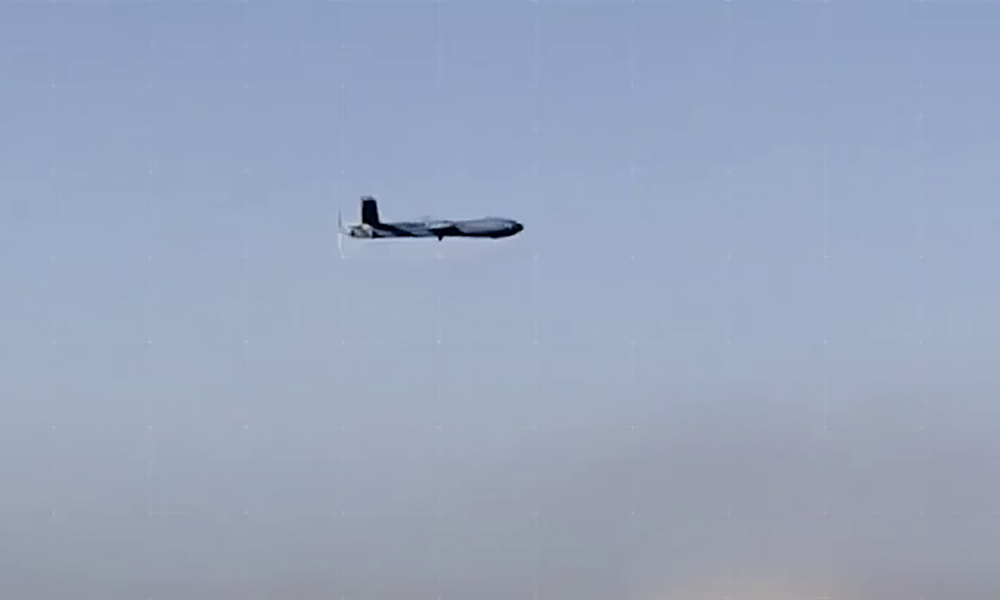
The Ministry of National Defense of the Islamic Emirate of Afghanistan announced that its Air Force conducted precise and coordinated aerial operations on Sunday against several key Pakistani military targets.
According to a statement from the ministry, the strikes targeted Nur Khan Airbase in Rawalpindi, the 12th Division headquarters in Quetta (Balochistan), the Khwazai Camp in Mohmand Agency of Khyber Pakhtunkhwa, as well as other major military facilities and command centers.
The ministry said preliminary assessments indicate the operations caused significant damage to the intended targets.
“These operations were carried out in response to the recent aerial incursions by the Pakistani military, which struck Kabul, Bagram, and several other regions,” the statement read.
The Ministry of National Defense further emphasized that any further violations of Afghan airspace or acts of aggression by hostile Pakistani elements will be met with a swift, decisive, and proportionate response.
-

 Latest News2 days ago
Latest News2 days agoPakistani military jet downed in Afghanistan’s Jalalabad, pilot captured alive
-

 Latest News3 days ago
Latest News3 days agoAfghan Air Force conducts airstrikes in Islamabad, other cities
-
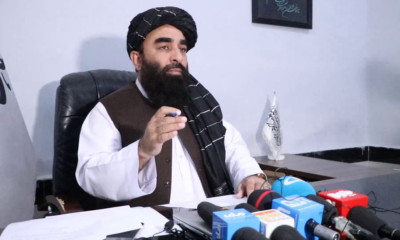
 Latest News3 days ago
Latest News3 days agoIEA: Special circle in Pakistan has launched mission to destabilize region
-

 World4 days ago
World4 days agoIndia’s Modi backs Israel in address at Israeli parliament
-
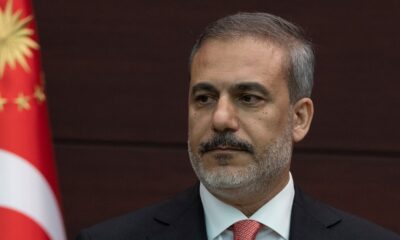
 Latest News3 days ago
Latest News3 days agoTurkey launches initiative to diffuse Afghanistan-Pakistan tension
-

 Regional4 days ago
Regional4 days agoNarendra Modi holds high-level talks after historic address to Knesset
-

 Latest News3 days ago
Latest News3 days agoAfghans say they are united against Pakistan aggression
-

 Latest News3 days ago
Latest News3 days agoPakistan carries out airstrikes after Afghanistan launches retaliatory attacks

![water - _16_09_2015_DARI_SOT.avi_snapshot_00.17_[2015.09.16_16.49.59]](https://ariananews.af/wp-content/uploads/2015/09/water-_16_09_2015_DARI_SOT.avi_snapshot_00.17_2015.09.16_16.49.59-300x240.jpg)













